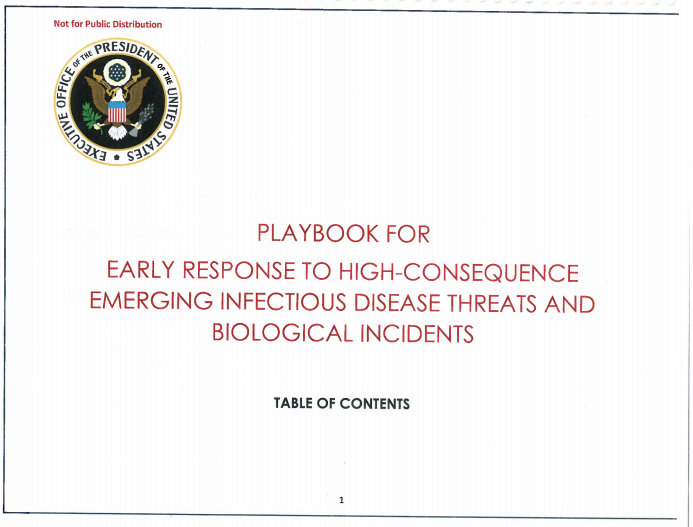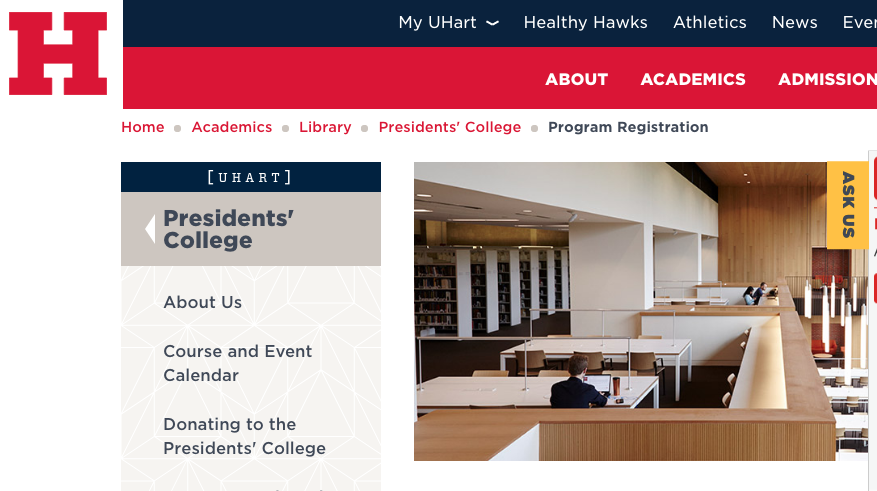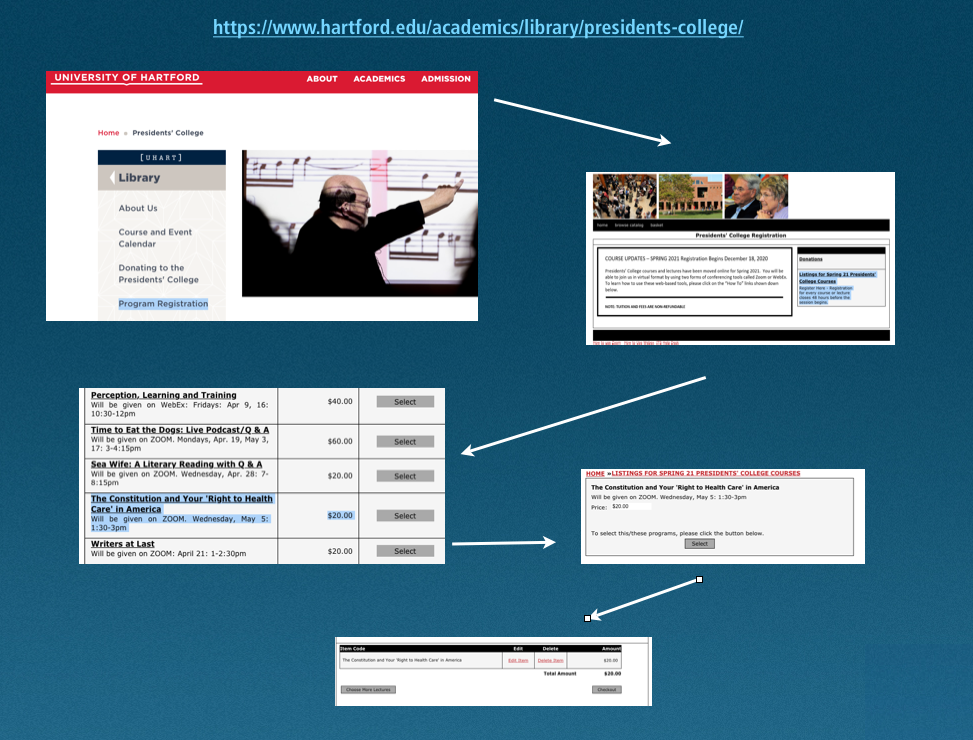Pandemic Accelerants: The Time Is Right For Change.
Posted on | March 8, 2021 | 1 Comment
Mike Magee
“…quietly below the surface, there are transformational forces underway fueled by pandemic accelerants.” THCB Gang, March 4, 2021.
Change on a societal scale promotes opposing forces – fear and retrenchment battles innovation and exploration. As we’ve witnessed in Washington, the clash can be epic and violent with Democracy itself at stake.
Resolution sometimes involves compromise, other times brute power. That is pretty much where the Democrats and President Biden found themselves this week as they passed an historic $1.9 trillion coronavirus relief plan on a 50-49 vote in the Senate. The “pandemic accelerant” here was massive public support for the bill, including 77% of all voters and 59% of Republican voters.
Buried inside the bill was a range of funding for health care, and as important, for the social determinants of health care. For example, $125 billion in new federal funding for K-12 education, was added to the already committed $67 billion, for a total new funding of $192 billion or an additional infusion of $2,600 per K-12 student.
Paralysis of our public education system has had a profound impact on our physical, emotional and financial health. It has also demanded sacrifice, teamwork, empowerment, and momentum. A quick Education Week review of the past year helps explain why.
Jan. 29, 2020: 1st mention of possible need for pandemic safety in schools.
Feb.15, 2020: Temporary school closures in Washington and New York.
Feb. 25, 2020: A CDC warning for schools.
March 5, 2020: A move toward distance learning begins.
March 11, 2020: WHO declares pandemic.
March 12, 2020: Gov. DeWine closes Ohio schools.
March 16, 2020: Schools now closed in 27 states.
March 17, 2020: Kansas annouces closure of schools for the year.
March 25, 2020: All US public school buildings closed.(Idaho is the last to go.)
May 6, 2020: Nearly all states now close schools for the year.
May 19, 2020: Teacher morale and student mental health surface as issues.
May 25, 2020: Addressing the George Floyd murder remotely becomes an emotional challenge for teachers and students.
June 15, 2020: Studies expose a “digital divide” between poor and rich students to broadband and computer devices.
July 28, 2020: In a virtual town hall, Dr. Fauci tells teachers they are “part of the experiment.” Teachers union threatens to strike if “forced” to return.
September 15, 2020: 74% of the 100 largest school districts chose remote learning only for over 9 million students.
September 23, 2020: 400 educators have died from Covid-19.
October 15, 2020: Majority of schools now embrace hybrid learning model.
November 2, 2020: Research supports safe school opening with precautions and testing.
November 7, 2020: Joe Biden elected President. He declares, “Everyone wants our schools to reopen. The question is how to make it safe, how to make it stick. Forcing educators and students back into the classroom in areas where the infection rate is going up or remaining very high is just plain dangerous.”
December 11, 2020: The first emergency authorization of a vaccine for Covid-19.
January 6, 2021: The insurrection at the Capitol.
January 7, 2021: U.S. Secretary of Education Betsy DeVos resigns.
January 20, 2021: President Joe Biden inaugurated.
February 7, 2021: Chicago Teachers Union agrees to reopen schools.
February 9, 2021: 1/5th of teachers vaccinated; another 1/5 scheduled. 70% state they will be vaccinated.
February 21, 2021: CDC Director Rochelle Walensky states, “I want to underscore that the safest way to open schools is to ensure that there is as little disease as possible in the community. Thus, enabling schools to open and remain open is a shared responsibility.”
March 1, 2021. New U.S. Secretary of Education Miguel Cardonais a champion of safe school reopening. 856 retired and active public schools teachers have died from Covid-19.
March 2, 2021: President Biden directs states to prioritize vaccinating teachers.
From the beginning of the pandemic, the nation’s school house has been in play. This unique tragedy has now claimed over a half million American lives, and carried with it economic devastation for many million more. The elimination of in-person schooling has also profoundly disrupted the labor market.
But after all we have been through over the past year, the majority of parents surveyed feel going back to the way things were would be short-sighted. They find themselves in the camp of health reformers who seek something more ambitious and transformational.
The same holds true for other social systems that impact societal health, equity and fairness – like safety and security, transportation, the environment and housing. Americans fear slipping back into the status-quo, and missing this moment of opportunity.
Few have access to an expert in the field of Advocacy. I am fortunate to have a son, Marc Porter Magee, PhD, a sociologist and Director of Advocacy Labs at Georgetown University. Here are a few of his insights from “Insights Into Effective Advocacy From The Nation’s Leading Experts”:
Momentum: “The hardest changes to secure are the modest ones. There is a natural friction to policy change, like trying to push an object across a table. Once you apply enough force to get it off its resting place, it is more likely to travel a foot than an inch.”
Empowerment: “The powerful aren’t as powerful as you think. It seems logical to assume that the advocacy efforts of the powerful should succeed more often than those with less power, but this isn’t true. When it comes to seeking a policy change, powerful groups are no more likely to win than any other group.”
Teamwork: “The most effective lobbying doesn’t look like lobbying. Arm-twisting, raised voices or threats rarely get results. Instead, most change happens when policy makers and outside advocates see themselves as members of the same team.”
Sacrifice: “If you want people to stay involved, ask them to sacrifice. It’s natural to think that the best way to keep people involved in your cause is to make it easy for them to take action. However, it is the very act of sacrifice that generates a long-term, personal commitment to the cause.”
Tags: advocacy > education > Pandemic > remote learning > school closing > transformation
An Invitation to: “Elizabeth Blackwell and Florence Nightingale – Lifelong Sparring Partners.”
Posted on | March 3, 2021 | 4 Comments
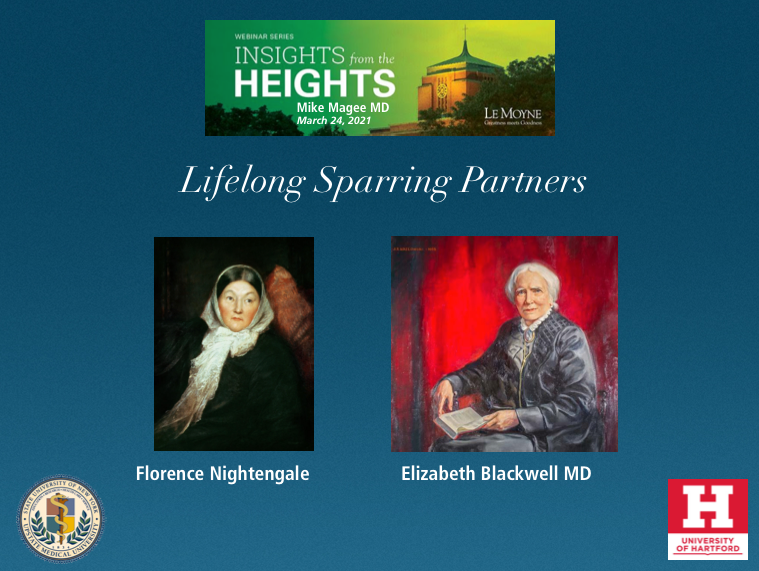
Join me for an entertaining, free 1 hour Le Moyne College Webinar:
Elizabeth Blackwell and Florence Nightingale: Lifelong Sparring Partners.
When: Wednesday, March 24, 2021, Noon to 1PM online.
Where: Online sponsored by LeMoyne College as part of their celebration of Women’s History Month.
How: Register Online HERE.
Description: Born months apart, and dying in their 9th decade within weeks of each other, Elizabeth Blackwell and Florence Nightingale were lifelong sparring partners. But what they shared in common, including guiding values and mutual respect for the role of women in society, outweighed their differing pathways to success. How did they meet, compete, collaborate, and challenge each other? Most importantly, why do we remember them today, and what is their connection to Syracuse, NY?
Moderna – The Upstart That Digitized the Pharma Field.
Posted on | February 27, 2021 | 2 Comments
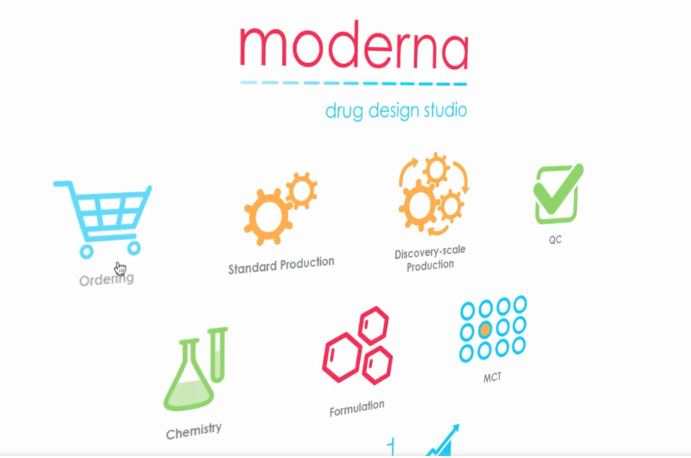
Mike Magee
As the saying goes, “Time is money.”
When it comes to breakthrough innovation, time is also a marker or measure of success.
Let’s take for example, Moderna, an upstart in the world of biomedical science, dwarfed by the giants in the industry, household names like Pfizer, Merck, and J&J – and the subject of a recent Harvard Business Review case study.
December of 2019: Local health officials in Wuhan, China were alerted to the appearance of an unusual type of viral pneumonia.
January 3, 2020: Moderna CEO Stéphane Bancel, on reading the alerts, emailed Anthony Fauci and his team at the NIH asking for more information. They were already close colleagues having developed a vaccine together that was active against MERS. Bancel also had deep relationships with the Gates Foundation.
January 5, 2020: They knew it was a coronavirus.
January 7, 2020: Chinese scientists announced they had completed the full genomic sequencing of the virus. This public declaration signaled to Bancel that this was a pandemic in the making, and that if Moderna involved itself, it would dominate (and potentially overwhelm) all other projects – 23 programs for drugs including 11 vaccines in design, two of which were against cancer.
January 11, 2020: The sequence was publicly posted on Virological.org, and the first human fatality from the virus was reported.
Januray 13, 2020: Moderna finalized its design for a vaccine to challenge the new virus. Moderna’s Board gave the go-ahead to Bancel. Now it was “all hands on deck.”
February 7, 2020: Moderna had produced and quality controlled its first batch of the new vaccine.
February 24, 2020: Just 42 days after the viral gene sequence had been revealed, Moderna delivered its vaccine to the NIH for testing.
March 16, 2020: The first human volunteer was injected with the vaccine in Seattle, Washington. They had gone from viral sequence to human trial in just over two months. Prior to this, the fastest transit was 20 months.
April 16, 2020: Moderna received a $483 million grant to develop its COVID-19 vaccine. On the announcement, its’ stock price headed north, accelerating from $37.25 on April 15 to $80 on May 18, 2020.
July 27, 2020: The vaccine entered Phase III trials, having just received an additional federal grant of $472 million.
December 20, 2020: Just 5 months later, the FDA granted Emergency Use Authorization.
Moderna was founded in 2020, with $5.1 billion in venture capital backing, “designed from the ground up as a digital biotech company with a factory for in-house manufacturing capabilities.” Up to this point, as they entered their 11th year, they had not brought a single product to market.
Moderna was the child born of Cambridge-based Flagship, run by Noubar Afeyan, an MIT bioengineer and world leader in bio-instumentation. His raison d’etre was “radical innovation.” He not only wanted to do big things, but do them faster than anyone else. As he said, “Asking ‘What if?’ questions propels you far into the future. It may be unrealistic or overly optimistic, but that’s how radical innovation happens.”
To accomplish this outsized ambition, he invested in a four-step process:
- Generate break-through innovation hypotheses (what-if’s).
- Explore the hypothesis. If it looks good, set-up a prototype company.
- If initials prove out, go permanent with a New Company.
- If promising, spin it off as a Growth Company.
One company that sailed through the 4 steps to spin off in record time was Moderna. The “big idea was Messenger RNA or mRNA. More on that in a moment. In 2012, Afeyan set his sights on a French scientist, Stéphane Bancel. A veteran life sciences engineer with years of prior experience at Lilly, he possessed two special qualities: 1) He was “impatient and wants to achieve impact fast.” 2) He “understood the power of digitization in the pharma field.”
Beginning in 2012, the two set about creating a fully digital integrated and vertical biomedical discovery and manufacturing firm that would optimize the Cloud, automation, robotics, algorithms and AI. “Scale with speed” was the mantra.
Whether by luck, foresight, or intuition, Moderna also possessed the perfect vehicle for this high-speed ride – mRNA. Taking its ultimate assignments from cellular DNA, RNA mirror images contain coding to build the thousands of proteins, like insulin, that we need to survive. The RNA masters are able to generate temporary RNA travelers or messengers that head out into the cellular cytoplasm with instructions for the bodies miniature protein assembly factories called ribosomes.
What Moderna’s leaders keyed in on a decade ago was that mRNA, if injected like a drug, was actually a data platform or software instruction manual that would instruct a patient to make its own drugs inside the ribosomes. The “secret sauce” was specially designed lipid nano-particles (LNP) that wrapped around the designer mRNA and protected it in transport while facilitating its delivery.
Can Moderna meet future needs as Covid variants or new deadly viruses arise? Yes we can, says Moderna’s Drug Design Studio promotional video. Have a listen HERE.
Bancel’s bottom line? “We’re a technology company that happens to do biology.”
Laying Lies To Rest: The Pandemic Playbook.
Posted on | February 23, 2021 | Comments Off on Laying Lies To Rest: The Pandemic Playbook.
Mike Magee
When awakening from a long sleep, there is a transition period, when the brain struggles momentarily to become oriented, to “think straight.” When the sleep has extended four years, as with the Trump reign, it takes longer to clear the sleepy lies from your eyes.
We are emerging, but it will take time and guidance. This week President Biden and our First Lady showed us the way. As we together observed the startling passage of a half million dead, many needlessly, from the pandemic, the President gave us a crash course on grief. He compared it to entering a “black hole”, and acknowledged that whether you “held the hand” as your loved one passed on, or were unable (by logistics or regulation) to be there to offer comfort, time would heal. “You have to believe me, honey!”, as he is so prone to say.
As important, we saw the First Lady, without fanfare or conscious need for attention, at one moment, draw close to him, as she sensed that he was about to be overcome by his own sadness, and place her hand simply on his back, patting him gently, knowing that this was enough to get him through. She, by then, had done this many times before.
And we saw the Vice President and her husband, across from the first couple, there only for support. This was neither a speaking role or super-ceremonial. It was humble. It was supportive. It was human, and far away from a predecessor who for four years had to fawn, and lie, and grovel to satisfy his Commander-in-Chief.
As these four lead us back to sanity, we as a body politic are fast at work doing three things as once:
1. We are addressing this pandemic with vaccines and good public health processes, and managing our emotional and economic grief and shock.
2. We are beginning to address all the other challenges left unaddressed that demand “good government” whether they be getting kids back to school, or reforming police practice, or turning on the electricity in Houston.
3. We are relearning how to respect the truth, tell the truth, and demand the truth. As Mandela taught the world in 1995, this is not as easy as it sounds. It requires that we reconcile with our past, reform our present, and resolve together to build a better future.
A simple example of these processes at work is addressing the lie that the Obama Administration had never created a pandemic plan, or warned the incoming Trump administration of the threat. This was a false narrative surfaced in May, 2020 by Trump administration officials, and reinforced by David Popp, Majority Leader McConell’s spokesperson, to aid Republican candidates.
Ronald Klain, Obama’s man-in-charge of the Ebola respose (and now Chief of Staff to Biden) then produced the actual plan, and multiple witnesses to the transition. These included Jeremy Konyndyk, who directed USAID’s Office of U.S. Foreign Disaster Assistance, who said, “They were extensively briefed, to the extent that they paid attention to these things during the transition.” Then there was Lisa Monaco, former homeland security adviser to President Obama, who affirmed, “We absolutely did leave a plan. It was called a playbook.”
Four days later, White House press secretary Kayleigh McEnany was forced to acknowledge the existence of the Obama pandemic playbook, but then obfuscated with a discussion of what constituted a “game plan.”
This was a tricky proposition since the Appendix Materials in the 69 page document included: I. Declaration and Mitigation Options, II. Key Department and Agencies: International and Domestic, III. Sample Exercises, IV. Communications, V. Concept of Operations for Domestic Response.
But as we have tragically witnessed, setting the past record straight alone is inadeqaute absent power and control over the levers of government. It took an election, and 5 dead from an insurrection at our Capitol on January 6th, to reclaim the present, and hopefully alter our future.
As difficult as that was, it leaves the critical third step ahead of us. Those who knowingly lied, who dishonored and spoiled the truth, must accept responsibility, apologize, and be held accountable. As Mandela taught us, this need not be punitive, but must be public, if trust and confidence in our Democracy is to be reestablished. Otherwise, history will repeat.
We Must All Swim Together for Cross-Racial Solidarity.
Posted on | February 18, 2021 | 3 Comments
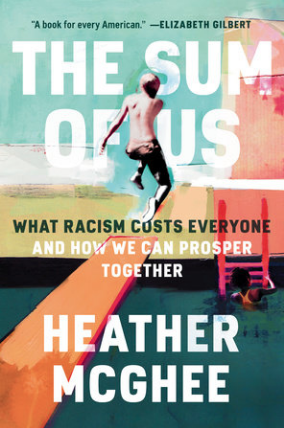
Mike Magee
“…honest self-examination is a critically important step to better understanding ourselves, to heal old wounds, and to take corrective actions to address ongoing societal harms.”
These were not the words of a member of Congress in the wake of the January 6 insurrection, nor the incantations of a religious leader appealing to a congregation of worshipers. They were the words this week of James L. Madura MD, the CEO of the American Medical Association in Chicago, IL.
They mirrored the final words in “CODE BLUE: Inside the Medical Industrial Complex”: “In the Declaration of Independence, our nation’s founders proclaimed that equality was self-evident. Nearly 250 years later, what has become equally self-evident is that there is no equality without reasonable access to health care, and that universal insurance coverage is the only system that truly can provide access that is reasonable.”
Dr. Madura was announcing the retirement of the bust of Dr. Nathan Davis who since 1845 has proudly carried the moniker, “father of the AMA.” The organization that he was instrumental in launching, however, had a rocky start.
According to Madura, “Dr. Davis’s answer for maintaining the AMA as a national organization was to explicitly exclude women and Black physicians from representation in our House of Delegates, thus appeasing many state and local medical societies who barred all but white men from their membership…Sadly, this would remain AMA policy for nearly a century, until race- and gender-based discrimination was officially outlawed by the Civil Right Act of 1964.”
His statement comes at a time when white supremacy and domestic terrorism is front and center after four years of relentless encouragement by Donald Trump. But its origins arose during a different Republican administration.
In the new millennium, there was renewed focus within academic medicine on health disparities. Madura states that “In 2008, the AMA concluded a three-year study on the racial divide in organized medicine and publicly apologized for our organization’s past discriminatory practices against Black physicians. The AMA’s apology was never intended to be the final word on the subject of race for our organization. In fact, the AMA called it ‘a modest first step toward healing and reconciliation.’”
Madura likely agrees with Bill Moyers who believes the problem runs deep and is at the core of America’s fatal flaw. Moyers says, “We’ve invested the word ‘democracy,’ with so much sacred aura. But we never really have had a real democracy.”
Author Heather McGhee, whose new book, THE SUM OF US: What Racism Costs Everyone, and How We Can Prosper Together” was just released, couldn’t agree more. As she says, “I think we really do have a secular religion in America, this idea that the powerful have to ask us for their permission to rule, right? The founders left holes in the bedrock of that revolutionary idea in order to make room for slavery and racial subjugation. And time and time again, with every generation, there has been a concerted effort to keep chipping away, to keep democracy, which in this country, would be a multiracial democracy, from taking root.”
McGhee literally illustrates her point on the book cover. There you’ll find a 1950 style illustration of a white child jumping off a diving board into a swimming pool, as a black child steps on a ladder on her way out. Inside the cover, McGhee reveals that when anti-segregation laws took hold in the U.S., over 2000 thousand communities, not only in the South but in the North as well, drained or filled in these public pools financed by tax dollars, rather than comply with integration. In recounting the story to Bill Moyers, he replies, “That happened, I regret to tell you, in my hometown.”
Heather McGhee is a descendent of slaves. Her great-grandparents and grandparents were part of the great migration north, worked in the steel mills, and settled in Madura’s city, Chicago. What the two have in common today is optimism and activism.
In removing Nathan Davis from his throne, Dr. Madura signals that it is time for this nation to grow up, swim in the same pool, and leave the “zero sum” game behind.
McGhee couldn’t agree more. “Racism has a cost for everyone. And its primary function in our society has been to grease the wheels for a machine of greed that has impoverished almost everyone…racial division as a tool wielded by those who are the most wealthy, the most powerful, and the most self-interested, is something that breaks down potential coalitions between people who have common struggle. It makes us demonize one another when, in fact, we should be linking arms to improve all of our lives…when we can create cross-racial solidarity, we can all benefit.”
Tags: ama > Bill Moyers > Black Lives Matter > Health Dysparities > Heather McGhee > James Madura > Systemic Racism > trump
The Seeds To Plant Now to Assure Vaccine Success.
Posted on | February 10, 2021 | Comments Off on The Seeds To Plant Now to Assure Vaccine Success.
Mike Magee
In the wake of Pearl Harbor, FDR found our nation ill prepared for war. He lacked manpower and tools. In response, he took deliberative action with the support of Congress, drafting soldiers and redirecting supply chains toward weapons of war. Compliance was requested, then demanded. Those industries that served, including Pfizer with penicillin production, benefited in the short and long-term.
FDR not only harnessed the power of industry and science, and ramped up the military, but also asked every family and every community to participate in the war effort. Community volunteering soared, and sacrifice for the public good was the rule, not the exception.
One idea was “victory gardens”, planted in back yards, to allow stressed food manufacturers the ability to focus on meeting the demand to “feed the troops.” These gardens in 1943 provided 1/3 of all the vegetables consumed in the states that year.
President Biden now finds himself in a similar predicament – the need to redirect our vast industrial productive capacity while mobilizing our citizens to both support and participate in vaccination efforts.
Our President and his team understand that interventional and privatized high science is of little avail if that science (in this case vaccines) is unable – by limited supply or logistic ineptitude or the absence of public trust – to find it’s way efficiently and quickly into the arms of our citizens.
Shortages of vaccine supply clearly have placed the emphasis on equitable distribution. But in the end, the secondary unintended negative impact has been profound. A legitimate desire to prioritize diverse and vulnerable populations, and protect our hospitals from being overwhelmed by sick and dying patients, has been translated into an anemic response that is overly medicalized and militarized.
In the push toward equity and over-concern with group gatherings, many states have relied on complex computer based scheduling and stadium like drive-up sites previously used as testing locations.
The emergence of potentially lethal strains has now made it clear that we are in a race. We need to get to herd immunity before the new virus strains have enough leisure time to become even more deadly. This means a major shift toward simple, local, walk-up mass immunization as we did for polio vaccination in the 1950s.
Public health leaders are rightly proud of their well-intentioned algorithms to assure equitable distribution of limited vaccine supply. Their military partners should be recognized as well for maintaining an orderly flow of vehicles and supply and approved individuals with minimal wastage of limited vaccine. But complexity carries its own inequities and is ill suited to the wartime challenge we now face.
What is now more than obvious is that we need a simple vast political campaign to reach a population 10-fold larger in 1/10th the time. This requires three elements:
1. Use of local, neighborhood vaccination sites. Schools are a logical local brick and mortar choice because they are viewed as a community resource, are accessible in every community across America, and have been proven safe even during the pandemic as the Nov. 3rd voting proved out.
2. Our campaign must reinforce vaccine acceptance. The best way to accomplish this is to include parents of school children (doctors, nurses, firefighters, police, EMTs) as volunteer providers of the injections. This was instrumental in the polio campaign. Their inclusion is not about manpower so much, but rather as a signal that this is a community-wide and community-based effort enjoys strong family and community support.
3. Demand must now drive supply. That is to say that the Pfizer’s of the world must voluntarily or through the Biden Administration’s use of the Defense Production Act extend patent utilization to partners to massively expand production overnight.
The value of organized participation – whether it be Pfizer penicillin or “victory gardens” in 1943 – extended well beyond pills and food. The true value was the sense of inclusion and solidarity, the singularity of focus on speed, sacrifice, and success. We face a similar challenge, and with President Biden, must rise to the occasion.
Join Me, Wednesday, May 5th. “The Constitution and the Right to Health Care.”
Posted on | February 1, 2021 | Comments Off on Join Me, Wednesday, May 5th. “The Constitution and the Right to Health Care.”
Mike Magee MD
May 5th seems far into the future with the pandemic still raging, distressing images of insurrection and a 2nd Impeachment fresh and current, and relief checks “in the mail.” But Spring is coming!
So I hope you’ll reserve May 5, 2021, from 1:30 to 3:00 PM, for a fascinating online lecture: “The Constitution and Your ‘Right’ to Health Care.” Best of all, the $20 fee helps support the lifelong learning programs at the University of Hartford. These virtual programs are open to all comers and are an invaluable resource to help combat the isolation, fear and worry that has affected all of our citizens.
This 90-minute slide lecture explores the recent political history and legal controversy surrounding attempts to establish universal health coverage in America. “Is health care a right?” viewed within the context of the Bill of Rights and especially the 9th and 10th Amendments? What are the legal arguments advanced over the past decade to challenge the Affordable Care Act (Obamacare)? And does the Covid-19 pandemic make it more or less likely that “Medicare for All” will pass legal muster in the future?
Join me for this stimulating interactive session, including time for audience participation, and contribute $20 to a great cause. You can register online HERE. (See path to registration below)
